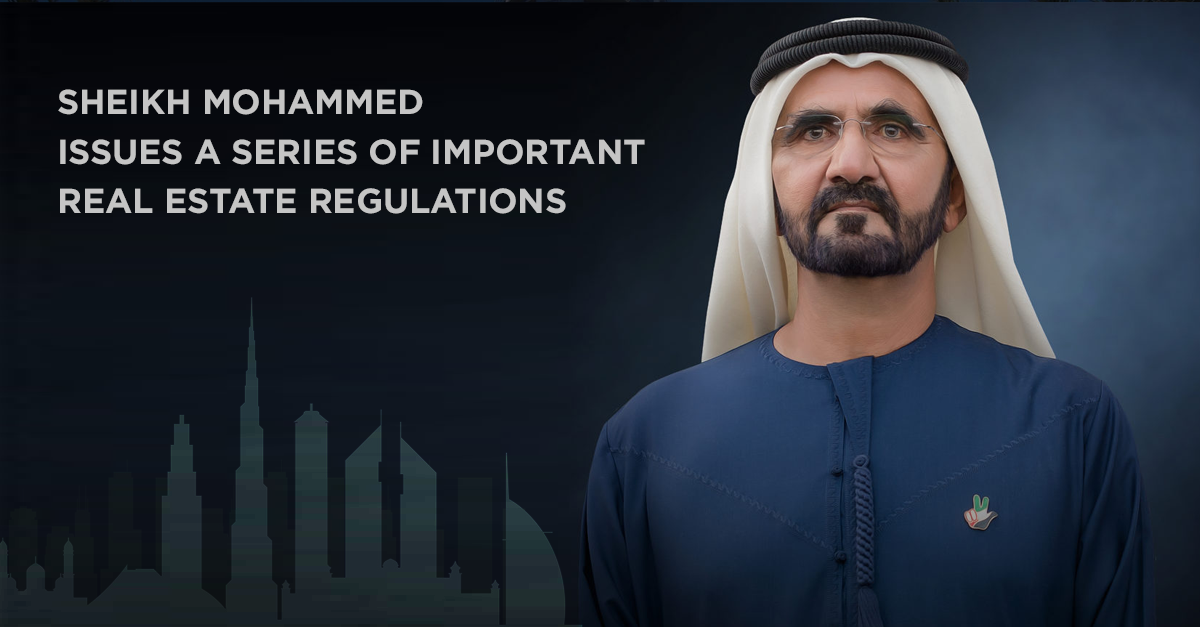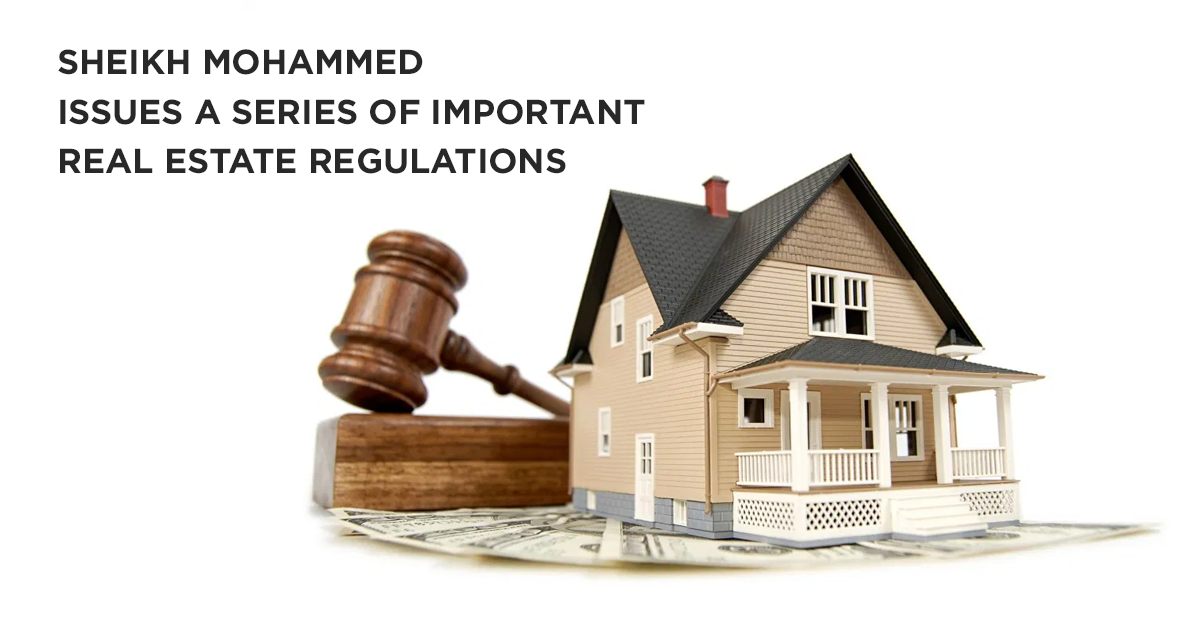Sheikh Mohammed issues a series of important real estate regulations
Dynamism is at an all-time high in the Dubai real estate industry, in response to the series of timely and effective reforms initiated by Sheikh Mohammed and his administration recently. The latest one concerns jointly owned properties and the facilities management (FM) market. The Ruler of Dubai has further empowered the Real Estate Regulatory Agency (RERA), so it can exert better control over procedures concerning this segment(1). FM service providers, as per the new laws, will have to comply with some additional norms stipulated by RERA.
The real estate sector in Dubai has witnessed a host of regulatory revamps in the past year. Under the guidance of Sheikh Mohammed, reforms in real estate have positively impacted ownership regulations, financial institutions, market supply and demand, skill development, proptech, short-term rentals and more. The government’s proactive intervention can also be seen as a precursor to Expo 2020 – an event that will have a direct bearing on Dubai’s real estate market, in the long and as well as short term. However, the new laws stand as timely reforms in isolation as well. They are likely to prove to be an effective means to boost real estate competitiveness, and create favourable market conditions for growth and investment.
The new laws
The government has announced the creation of a register specifically for jointly owned properties. Among other things, this register will feature details of land owned by the developers, residential units in the facility, common areas, maintenance costs and the committee in-charge. Going forward, the FM providers will be obligated by law to submit a bi-yearly operational report to RERA, while the regulatory body will also be able to exercise its right to request additional information, as and when it chooses. The new law mandates that FM providers must take responsibility for insurance coverage of the projects. Also, the FM providers cannot operate and maintain common areas without receiving approval from RERA. Any anomalies and noncompliance will be met with penalties up to Dh1 million, or even upwards in case of repeat offences.
The onus will be on developers to establish an FM service in the project, pending RERA approval, and ensure the owners association is set up, once at least 10% of the jointly owned property has been sold. Developers can no longer be in the owners committee after the last unit is sold, and will bear responsibility for the building’s structure for up to ten years after the issuance of the completion certificate. The developer will liable for the repair and replacement of faulty items in residential units, for the first year after the date of handover. To bring further clarity to these laws, jointly owned properties have been categorized into mega projects, hotel projects and the rest. All the jointly owned properties in Dubai are subject to the new laws, based on the category they belong to.
These new, customer-centric laws will further inspire investor confidence and foster demand. An investor-friendly market is a desirable quality to counter the general glut in real estate. The new laws safeguard customer interests and also eliminate ambiguities in the developer ecosystem, providing a robust framework for all parties to work within.

State of facility management (FM)
The facility management market is currently undergoing a tech-driven disruption and exponential growth. According to technavio, the market will witness an incremental growth to the tune of $678.16 billion during 2019–2023, accompanied by a CAGR of over 12%(2).
In terms of technology, cloud-based FM solutions and the advent of the Internet of Things (IoT) are the key factors driving this expansion. With automation, connected devices and sustainable developments gaining traction, this trend will only gather more steam. Technology has also revolutionized the FM market by facilitating quicker disaster management, secure hosting of vital data, remote accessibility, advanced security and scalability.
Although North and South America boast the highest market share of global FM at the moment, the EMEA (Europe, the Middle East and Africa) region is expected to overtake them by 2023. As far as UAE is concerned, the value of FM market was 1.3% of the GDP in 2018, according to the Institute of Workplace and Facilities Management (IWFM)(3). The report recognizes the UAE as a hugely competitive FM market with highly price-sensitive customers. It also notes that most developers in this market are inclined towards an in-house FM strategy.
The Dubai government has recognized the value proposition in technology-driven FM systems. It’s a testament to RERA’s foresight that it had launched the web-based Mollak system, which integrates property registration, FM services, escrow accounts and service charges on a single platform, a few weeks ago. The new laws are yet another significant step in further empowering transparency and accountability, within the Dubai real estate market.
- https://gulfnews.com/business/property/mohammed-bin-rashid-issues-law-on-joint-ownership-of-real-estate-in-dubai-1.66646852
- https://www.technavio.com/report/global-facilities-management-market-industry-analysis#utm_source=pressrelease&utm_medium=bw&utm_campaign=t-26_wk_39&utm_content=IRTNTR30251
- https://www.iwfm.org.uk/sites/default/files/2019-01/24315%20Global%20FM%20Market%20Report%202017_0.pdf




